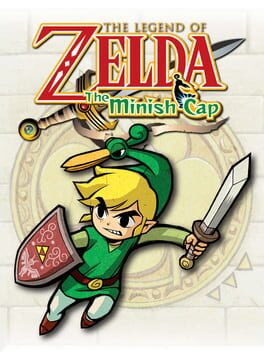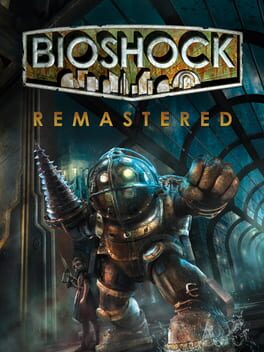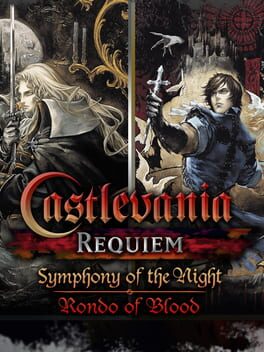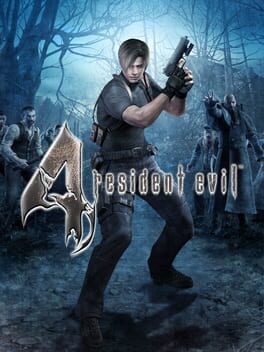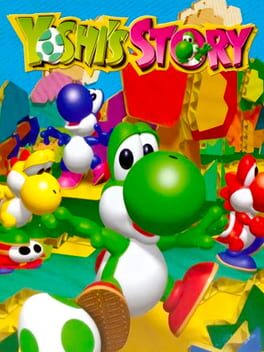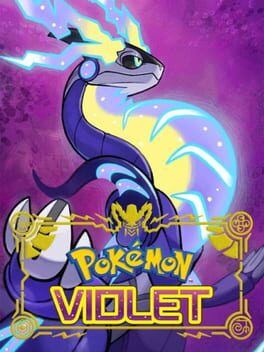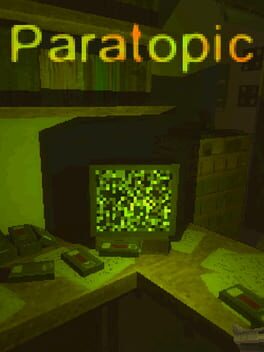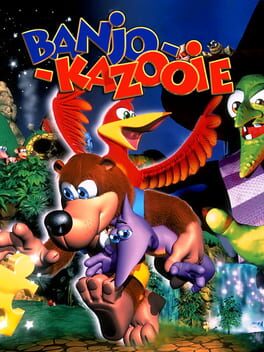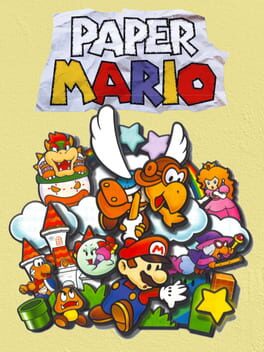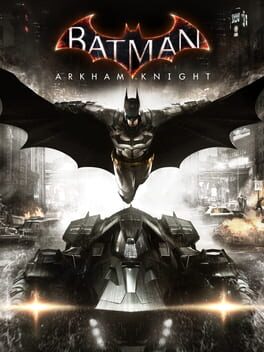EconoJammer
Really solid handheld LoZ entry. The shrinking aspect is cute and clever. Difficulty increase is masterful, the definition of tough but fair. Beautiful pixel art, although it's often wasted on the sparse dungeons. Some story advancements aren't triggered by the most intuitive means (I'm looking at you, library returns quest). Vaati is up there with Xant in the pantheon of cool onetime villains and pulls off the rare feat of a satisfying endgame.
2016
My take on this should be viewed with a grain of salt because I am super late to the party and this naturally does not feel revolutionary in 2024 the way it did in 2007.
Maybe this is a Switch thing, but I find the combat to be pretty futile most of the time. I selected plasmid upgrades that I thought were sensible but maybe I didn't pour nearly enough effort into researching enemies. Either way, there were many instances of me walking into a space, taking damage, and not knowing for the longest time which direction my assailant was coming from until it was too late. I saw the inside of a Vita-Chamber many times. Paired with the lumbering nature of Jack, I found it near impossible to enter a firefight and get by unscathed. Big Daddies especially were a guaranteed one-revive affair, no question. Again, the combat may not translate well to a Switch controller, so I won't judge too harshly what is considered to be a game-changing shooter.
Another thing I don't love is the lack of cutscenes. Any exhibition gets delivered via people communicating with you while the game rages onward. Once I completed the game (happy ending), I made sure to read the Wikipedia synopsis and was shocked to find several important plot points that I missed, most definitely because the game didn't wait for me to slow down and listen while the story unfolded.
Regardless, I can see why this made such a huge splash when it was released. The design of Rapture is remarkable, a real rabbit hole of megalomania and failed utopia. Customization of plasmid upgrades is a very attractive way to tailor your play style to your preference. And the game itself is unexpectedly spooky at times—snapshots of ghostly memories being one of the more unforgettable traits here. I definitely enjoy it more than I dislike it, so I'll move onto 2 in good time.
Maybe this is a Switch thing, but I find the combat to be pretty futile most of the time. I selected plasmid upgrades that I thought were sensible but maybe I didn't pour nearly enough effort into researching enemies. Either way, there were many instances of me walking into a space, taking damage, and not knowing for the longest time which direction my assailant was coming from until it was too late. I saw the inside of a Vita-Chamber many times. Paired with the lumbering nature of Jack, I found it near impossible to enter a firefight and get by unscathed. Big Daddies especially were a guaranteed one-revive affair, no question. Again, the combat may not translate well to a Switch controller, so I won't judge too harshly what is considered to be a game-changing shooter.
Another thing I don't love is the lack of cutscenes. Any exhibition gets delivered via people communicating with you while the game rages onward. Once I completed the game (happy ending), I made sure to read the Wikipedia synopsis and was shocked to find several important plot points that I missed, most definitely because the game didn't wait for me to slow down and listen while the story unfolded.
Regardless, I can see why this made such a huge splash when it was released. The design of Rapture is remarkable, a real rabbit hole of megalomania and failed utopia. Customization of plasmid upgrades is a very attractive way to tailor your play style to your preference. And the game itself is unexpectedly spooky at times—snapshots of ghostly memories being one of the more unforgettable traits here. I definitely enjoy it more than I dislike it, so I'll move onto 2 in good time.
I bought this entirely for Symphony of the Night. Before this, the only MetroidVania games I had played were Super Metroid and Hollow Knight; the latter of which is one of my favorite games ever. It's crazy to see how close to the golden standard they came from the very beginning. All I'd ever heard about SotN is that it invented a genre and it couldn't be more true. The template is all there in 1997 and I felt the exact same high from exploration-based reward that I did playing Hollow Knight a few years ago. Way ahead of its time. The animation is beautiful, some of the best pixels I've ever seen. When Alucard quickly crouches and you see his long white hair and the fabric of his cape gently follow him, just a second behind... that's some fine detail.
Played to achieve the "good" ending, involving the inverted castle, facing Shaft and Dracula at the end.
I tried Rondo of Blood. Made it to Stage 2. The wolfman boss at the end is an instant no for me. I think I attempted it 12 times and no amount of pattern recognition would have helped me, only luck. This is far back enough that the gameplay is punishing without being any bit fun. Dracula's Revenge is a lot like this in that way. I'll cut my losses and just say hey, I'm very happy to have played Symphony of the Night.
Played to achieve the "good" ending, involving the inverted castle, facing Shaft and Dracula at the end.
I tried Rondo of Blood. Made it to Stage 2. The wolfman boss at the end is an instant no for me. I think I attempted it 12 times and no amount of pattern recognition would have helped me, only luck. This is far back enough that the gameplay is punishing without being any bit fun. Dracula's Revenge is a lot like this in that way. I'll cut my losses and just say hey, I'm very happy to have played Symphony of the Night.
This review contains spoilers
Definitely last in my ranking of the five main series games. At the end of the day, the story is what I show up for. That element is comparatively lacking here. However, sized up against most games with a narrative, it's still far and above the average! Say what you will about the controversy surrounding Quiet; she gets a really solid ending. The revelation about her circumstances is possibly enough to pacify any misgivings about the character. The "Kingdom of the Flies" cliffhanger is frustrating, yes. But also as an unresolved storyline, I think it's fine that Eli absconds with the mech and then isn't heard from until MGS1. If you're playing this game and don't know where his storyline goes, that's on you.
The Phantom Pain is like a giant version of Peace Walker. Fulton extractions, main missions and side ops, FOBs, the works. The open world is a bit dismaying. Yes, the gameplay is stellar. So much innovation and ingenuity at hand. There's no right answer to how one approaches a mission. What I love about the series is the linear storytelling though. This is very old-man-yelling-at-a-cloud of me, but I just prefer the previous four's style of forward progression. This one is different in ways that are remarkable, but for me, not quite so much to cross the threshold into being better overall.
Played through to achieve the endings of "A Quiet Exit" and "[TRUTH] The Man Who Sold the World".
I wonder if Kojima is a fan of the movie Pontypool. The vocal cord parasite plotline seems heavily influenced by it.
The Phantom Pain is like a giant version of Peace Walker. Fulton extractions, main missions and side ops, FOBs, the works. The open world is a bit dismaying. Yes, the gameplay is stellar. So much innovation and ingenuity at hand. There's no right answer to how one approaches a mission. What I love about the series is the linear storytelling though. This is very old-man-yelling-at-a-cloud of me, but I just prefer the previous four's style of forward progression. This one is different in ways that are remarkable, but for me, not quite so much to cross the threshold into being better overall.
Played through to achieve the endings of "A Quiet Exit" and "[TRUTH] The Man Who Sold the World".
I wonder if Kojima is a fan of the movie Pontypool. The vocal cord parasite plotline seems heavily influenced by it.
Impossible to be succinct or verbose about this one. At the start of the COVID pandemic in 2020, I began Breath of the Wild and it was the best thing I could have done. As it was my first foray into an open world game, I marveled—a few years late to the party everyone else attended—at the map and artwork and storyline and customization and quests upon quests within. It immediately, without question, established itself as the best Legend of Zelda game. Sentimental attachment and personal preference aside, this is Link's fullest, most realized adventure yet.
Now here we are a few years later. I believe this is the first direct sequel a 3D platform entry in the franchise has received. The assets are the same. It's a big enough Hyrule, I was confident they'd be able to fit another game in there. But the team blew our minds once again.
In each of those mountains we scaled, there were caves inside. Underneath the Necluda Sea and Hylian River, there existed the eerie and dangerous Depths. And high above our heads, the wondrous Sky Islands. All along.
As if that weren't enough, they added the Ultrahand ability, allowing the most painterly and engineer-minded of Zelda fans to strut their creativity. I just finished the game today but it keeps on giving—the era of ingeniously crafted Zonaite machines spread across the internet is in its nascence, I'm certain.
It's all been said. They took a perfect, gargantuan game and unthinkably expanded its parameters twofold. Tears of the Kingdom is so perfect in its scope and beautifully rewarding of exploration. I do not envy whomever's job it is to follow up this mainline entry.
Now here we are a few years later. I believe this is the first direct sequel a 3D platform entry in the franchise has received. The assets are the same. It's a big enough Hyrule, I was confident they'd be able to fit another game in there. But the team blew our minds once again.
In each of those mountains we scaled, there were caves inside. Underneath the Necluda Sea and Hylian River, there existed the eerie and dangerous Depths. And high above our heads, the wondrous Sky Islands. All along.
As if that weren't enough, they added the Ultrahand ability, allowing the most painterly and engineer-minded of Zelda fans to strut their creativity. I just finished the game today but it keeps on giving—the era of ingeniously crafted Zonaite machines spread across the internet is in its nascence, I'm certain.
It's all been said. They took a perfect, gargantuan game and unthinkably expanded its parameters twofold. Tears of the Kingdom is so perfect in its scope and beautifully rewarding of exploration. I do not envy whomever's job it is to follow up this mainline entry.
2011
Figured I'd get on this now that the remake has dropped. I really admire the franchise daring to be stupid after three pretty straightforward infection outbreak survival horror games. Stupid in the way that makes you genuinely go "hell yeah" when you're playing it. Metal Gear Rising: Revengeance owes a lot to this in that sense.
Small gripes. Having been blessed with so many games since that have allowed you to move your body while shooting, the controls took some getting used to. Also I do feel that the game's iconography is pretty frontloaded. Everything following Salazar is just not as special anymore. But everything after Salazar is still pretty damn solid, primarily the introduction of the regenerators.
It's misogynistic in the gleeful sort of way that a younger brother is, trying to keep up with guy talk amongst an older presence, seeking approval. After jumping into the garbage chute, Leon says something to Ashley along the lines of, "Heh, I knew you'd be fine if you landed on your butt." Dude... shut up.
The sound design stacks up to many modern day games. The roar of a Ganado, the revving of a chainsaw, the religious chanting of a zealot, the sickly murmuring of a regenerator—all of which are dealt in perfectly vague proximity to keep you watching your six.
Not even having played the remake, I get why this is such a game changer. Every step of this feels classic.
Small gripes. Having been blessed with so many games since that have allowed you to move your body while shooting, the controls took some getting used to. Also I do feel that the game's iconography is pretty frontloaded. Everything following Salazar is just not as special anymore. But everything after Salazar is still pretty damn solid, primarily the introduction of the regenerators.
It's misogynistic in the gleeful sort of way that a younger brother is, trying to keep up with guy talk amongst an older presence, seeking approval. After jumping into the garbage chute, Leon says something to Ashley along the lines of, "Heh, I knew you'd be fine if you landed on your butt." Dude... shut up.
The sound design stacks up to many modern day games. The roar of a Ganado, the revving of a chainsaw, the religious chanting of a zealot, the sickly murmuring of a regenerator—all of which are dealt in perfectly vague proximity to keep you watching your six.
Not even having played the remake, I get why this is such a game changer. Every step of this feels classic.
One of the most fully realized pieces of art I've ever experienced. Ingenious throughout. By Day 2, I was obsessed. Walks a masterful line between crisis, hilarity, socioeconomics, and surrealism. It takes such a big swing and [Physical Instrument, Red Check] makes full contact. The densest, the brainiest (competing with the work of Jonathan Blow), the most literary video game I've ever played.
Stunning voice work as well—I cannot imagine playing the original version in retrospect.
Stunning voice work as well—I cannot imagine playing the original version in retrospect.
1997
What a lovely little game... not much else beyond that. No one told me it was just six stages!
The parts of this game that I love have nothing to do with the gameplay. It's got a really humble positivity to it that makes me a bit tearful. I don't know if there are official lyrics to the main theme but it really sounds like the Yoshis are singing "Be caaaaaarefuuuuuuul" and that's just... so sweet. Also the whole thing is about the pursuit of happiness by really simple means. "The page turned and the Yoshis grew happier" is tattoo-worthy. It's a mood I want to live in.
The parts of this game that I love have nothing to do with the gameplay. It's got a really humble positivity to it that makes me a bit tearful. I don't know if there are official lyrics to the main theme but it really sounds like the Yoshis are singing "Be caaaaaarefuuuuuuul" and that's just... so sweet. Also the whole thing is about the pursuit of happiness by really simple means. "The page turned and the Yoshis grew happier" is tattoo-worthy. It's a mood I want to live in.
2022
First Pokémon game I've played since Emerald. Yeah yeah yeah, the technical limitations are awful and shameful in many respects. But I had way too much fun playing this to care.
When I played the top-down entries, completing the Pokédex was nothing more than a nice thought. I caught Pokémon that I cared about and nothing else. I wouldn't even waste my time on Rattatas and Pidgeys on the way to Pewter City. Now, the dispelling of random encounters makes completing the Pokédex more addicting than ever. Seeing Pokémon in the wild ALL around you is thrilling. Before you even reach the university city, there must be some odd 40 Pokémon at your disposal to catch. I'm sure I'm sideways complimenting Arceus, a game I've yet to play, but yeah, the system works.
I've been yearning for this exact experience since Pokémon Colosseum teased it many years ago. Despite the obvious graphical and rendering issues, Pokémon Violet delivers.
When I played the top-down entries, completing the Pokédex was nothing more than a nice thought. I caught Pokémon that I cared about and nothing else. I wouldn't even waste my time on Rattatas and Pidgeys on the way to Pewter City. Now, the dispelling of random encounters makes completing the Pokédex more addicting than ever. Seeing Pokémon in the wild ALL around you is thrilling. Before you even reach the university city, there must be some odd 40 Pokémon at your disposal to catch. I'm sure I'm sideways complimenting Arceus, a game I've yet to play, but yeah, the system works.
I've been yearning for this exact experience since Pokémon Colosseum teased it many years ago. Despite the obvious graphical and rendering issues, Pokémon Violet delivers.
2018
Very Lynch-inspired surrealism. I wish it all gelled as well as his work seems to. A lot of the sequences in Paratopic are fairly disparate, which I'd be fine with if they weren't so clearly experienced by the same POV in the span of a very strange day. As a lo-res slideshow of odd happenings, it's effective. It unfortunately rolls credits just before any semblance of connection can be drawn. Not excellent enough to warrant an instant replay in attempt to unlock all the achievements but maybe worth revisiting someday in the future once I've forgotten most of the plot. Cool enough to spend 45 minutes on at least once for sure.
1998
I was really excited to finally get to play this on Nintendo Switch Online. I've heard that this particular port is bad, but even giving it that benefit of the doubt, I really hate this game.
Most people criticize Banjo-Kazooie for its camera. That is more than fair. It's the worst camera system I've ever come across in a game. If often feels like it's actively working against you, like the early Resident Evil games, except they aren't artfully designed. Your camera has a set number of angular pivots and not one of them allows you to view Banjo squarely from behind. This is a huge problem when many challenges require you to have Kazooie shoot eggs into a target. I could never get a true read on my aim, wasting egg ammunition and a lot of time.
I know this is a Super Mario 64 clone, but it's worse in every conceivable way. SM64 is a benchmark for platformers. I've played it on the N64 in its most nascent form and it's still an incredibly tight game. The controls for B-K suck; hit boxes for enemies are extremely arbitrary, landing on smaller surfaces is a crapshoot, the "beak bomb" move is unwieldy—all of these things are necessary to progress in the game.
Without the miracle of save states on NSO, I would have never completed Banjo-Kazooie. I consider myself to have achieved a few impressive gaming feats here and there. I've 100% completed Super Mario Odyssey. I beat the Radiance in Hollow Knight. These are but two I look back on and think, "Damn, I really killed myself making that happen." The finale of this game, from Grunty's Furnace Fun to the final battle with her, are painstaking.
Furnace Fun, for one, asks so many ridiculous questions that would, if not for save states allowing me to have unlimited stabs, have had me hemorrhaging honeycombs. The worst tiles of all being the timed challenges. But then, let's say you are able to somehow make it past that without a save state. How in the world does one face Grunty on top of her tower and make it out alive?
The first few stages of the fight are reasonable and challenging. But following the force field portion, when she starts throwing magma at a fierce clip, you're toast unless every movement you make is aided by divine intervention. And this is where that damn camera issue comes in to really bite you in the ass. The giant Jinjo statue requires three eggs in the four slotted sides to its base and boy, Grunty sure is a relentless deadeye with the magma... it's so impossibly difficult to me that I just don't believe you if you say you beat this on the N64 (i.e. without save states). I know I'm complaining a lot about this old game and Rare obviously has a knack for making their titles unforgivably difficult (see: Donkey Kong Country and its sequels) but yeesh.
Most people criticize Banjo-Kazooie for its camera. That is more than fair. It's the worst camera system I've ever come across in a game. If often feels like it's actively working against you, like the early Resident Evil games, except they aren't artfully designed. Your camera has a set number of angular pivots and not one of them allows you to view Banjo squarely from behind. This is a huge problem when many challenges require you to have Kazooie shoot eggs into a target. I could never get a true read on my aim, wasting egg ammunition and a lot of time.
I know this is a Super Mario 64 clone, but it's worse in every conceivable way. SM64 is a benchmark for platformers. I've played it on the N64 in its most nascent form and it's still an incredibly tight game. The controls for B-K suck; hit boxes for enemies are extremely arbitrary, landing on smaller surfaces is a crapshoot, the "beak bomb" move is unwieldy—all of these things are necessary to progress in the game.
Without the miracle of save states on NSO, I would have never completed Banjo-Kazooie. I consider myself to have achieved a few impressive gaming feats here and there. I've 100% completed Super Mario Odyssey. I beat the Radiance in Hollow Knight. These are but two I look back on and think, "Damn, I really killed myself making that happen." The finale of this game, from Grunty's Furnace Fun to the final battle with her, are painstaking.
Furnace Fun, for one, asks so many ridiculous questions that would, if not for save states allowing me to have unlimited stabs, have had me hemorrhaging honeycombs. The worst tiles of all being the timed challenges. But then, let's say you are able to somehow make it past that without a save state. How in the world does one face Grunty on top of her tower and make it out alive?
The first few stages of the fight are reasonable and challenging. But following the force field portion, when she starts throwing magma at a fierce clip, you're toast unless every movement you make is aided by divine intervention. And this is where that damn camera issue comes in to really bite you in the ass. The giant Jinjo statue requires three eggs in the four slotted sides to its base and boy, Grunty sure is a relentless deadeye with the magma... it's so impossibly difficult to me that I just don't believe you if you say you beat this on the N64 (i.e. without save states). I know I'm complaining a lot about this old game and Rare obviously has a knack for making their titles unforgivably difficult (see: Donkey Kong Country and its sequels) but yeesh.
2000
For anyone dissing on RPGs for being too long, may I point you toward Paper Mario? Every new chapter/area is fresh and its own thing. No repeat gimmicks. Every new companion that gets added to your party brings a new environmental skill to spice things up. The duration never gets tiresome the way most RPGs, no matter how excellent, inevitably do. Most importantly: no grinding. I comfortably went through the entire storyline never once feeling like I needed to gain a few more levels before taking on a boss. This is the ideal RPG for those who detest grinding (who doesn't?).
With any RPG, the writing is crucial, and I was tickled at the humor of this one. I feel safe calling it the funniest Mario game, given that dialogue doesn't factor into most of the franchise. The characters are all humorous and charming. Simple comedy. Bow's combat consists of concussive bursts of face smacks. Professor Kolorado's whole tragic explorer thing never gets old. There's a really fat Shy Guy that you have to feed baked goods on more than one occasion resulting in some really overdramatic cutscenes that hit my funny bone for sure. A pleasant RPG! Runs like a charm on the Nintendo Switch Online expansion pass.
With any RPG, the writing is crucial, and I was tickled at the humor of this one. I feel safe calling it the funniest Mario game, given that dialogue doesn't factor into most of the franchise. The characters are all humorous and charming. Simple comedy. Bow's combat consists of concussive bursts of face smacks. Professor Kolorado's whole tragic explorer thing never gets old. There's a really fat Shy Guy that you have to feed baked goods on more than one occasion resulting in some really overdramatic cutscenes that hit my funny bone for sure. A pleasant RPG! Runs like a charm on the Nintendo Switch Online expansion pass.
2018
This has been my entry point to the franchise, and apart from the significance of Kratos's forearm bandages, I don't think there was a single plot element that eluded me. Very obviously reminiscent of The Last of Us, this is a first-rate paternal epic that doubles as The People's History of Norse Mythology. I love the cynical bile with which Mimir tells his stories across the Lake of Nine about the true monsters Odin and Thor were.
Simply one of the best looking games I've ever played. Lots of wiry beard hairs to animate here and not a one appears out of place or uncanny.
Played through to credits. Freed all three dragons, completed all of Brok and Sindri's favors, made it to the last Muspelheim trial before the valkyrie, and fooled around in Nifelheim for a bit; no realm tears closed there. Freed only one valkyrie. Cost-benefit analysis on the valkyries doesn't agree with the backlog I'm looking at right now, but they're good challenges. Otherwise, stellar stuff. Glad I gave this a chance, and just in time for Ragnarök.
Simply one of the best looking games I've ever played. Lots of wiry beard hairs to animate here and not a one appears out of place or uncanny.
Played through to credits. Freed all three dragons, completed all of Brok and Sindri's favors, made it to the last Muspelheim trial before the valkyrie, and fooled around in Nifelheim for a bit; no realm tears closed there. Freed only one valkyrie. Cost-benefit analysis on the valkyries doesn't agree with the backlog I'm looking at right now, but they're good challenges. Otherwise, stellar stuff. Glad I gave this a chance, and just in time for Ragnarök.
At worst, it's Batmobile: The Game. The vehicle's introduction is mostly cool; allows for fast travel, and the tank battles became oddly satisfying to complete after I got the hang of them. But those portions are the farthest thing from what makes a Batman game and they really crowd the joint. I guess it takes up half the cover artwork, so what did I expect? Still, not quite enough of a downside to what's otherwise another great game from Rocksteady.
Not as story-perfect as City, but that's kind of an impossible bar. Exciting to see certain villains appear, despite some of their respective missions being rather repetitive. The true ending is a bit whatever, especially having completed all 243 riddles—maybe a fourth of which are of quality. A lot of fat to be trimmed there, as with every installment to this franchise.
This is a lot of griping for what is a good game and solid ending to the Rocksteady trilogy. When I started out, even though it had been nearly a year since I played Origins, I felt so familiar to the controls and play style that the thought of dedicating time and energy to another one of these threatened to be slogging. Soon enough though, I was swept back in and thrilled to be traversing another adventure for Gotham's defender. Kudos to the writing team. Don't love or understand why Paul Dini was replaced, but they still did a fine job, adding many callbacks and allusions to The Animated Series to boot.
Not as story-perfect as City, but that's kind of an impossible bar. Exciting to see certain villains appear, despite some of their respective missions being rather repetitive. The true ending is a bit whatever, especially having completed all 243 riddles—maybe a fourth of which are of quality. A lot of fat to be trimmed there, as with every installment to this franchise.
This is a lot of griping for what is a good game and solid ending to the Rocksteady trilogy. When I started out, even though it had been nearly a year since I played Origins, I felt so familiar to the controls and play style that the thought of dedicating time and energy to another one of these threatened to be slogging. Soon enough though, I was swept back in and thrilled to be traversing another adventure for Gotham's defender. Kudos to the writing team. Don't love or understand why Paul Dini was replaced, but they still did a fine job, adding many callbacks and allusions to The Animated Series to boot.
